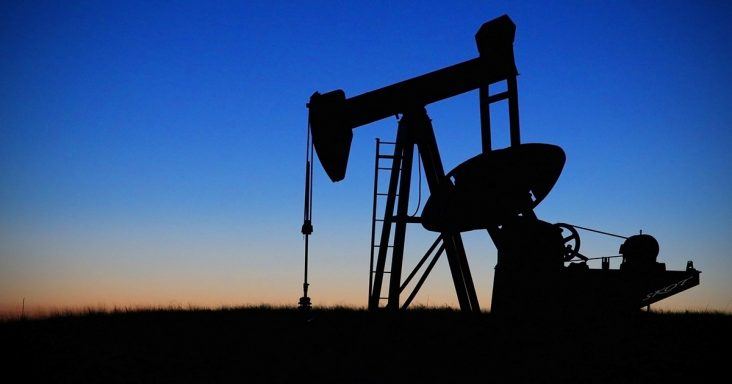BHP: Rising energy prices, lower taxes boosting interest in U.S. energy assets
by May 30, 2018 1:55 pm 546 views

Rising oil and natural gas prices and a more attractive corporate tax structure are driving interest in BHP Billiton’s auction of its U.S. onshore assets, which include the Fayetteville Shale Play in Arkansas that the mining conglomerate has put up for sale.
According to a recent presentation to investors and Wall Street analysts at the Bank of America Merrill Lynch Global Metals, Mining and Steel conference, BHP Chief Executive Andrew Mackenzie said the company is making “good progress” on the global mining operator’s plan to auction off the U.S. oil and gas business.
In mid-April, Talk Business & Politics reported that BHP officially kicked off the fire sale for the Fayetteville Shale by hiring Wall Street banking giant Barclays to set up a “virtual data room” to provide prospective bidders with key details of the unconventional Arkansas natural gas play.
Under the company’s new U.S. exit strategy, BHP also plans to halt drilling in the Eagle Ford Shale in south Texas, the Permian Basin in west Texas and New Mexico, and the Haynesville Shale region spread across parts of east Texas, north Louisiana and south Arkansas.
“We are open to a trade sale demerger or IPO (initial public offering), but our preference is a sale in one or multiple packages for cash or strategic assets within our existing footprint,” Mackenzie said at the Bank of America conference in Miami, Fla., on May 15. “And the sale process is on track. All data rooms are open, bids are due in the coming weeks and we hope to announce the sales by the end of this calendar year.”
The BHP chief executive said higher oil prices, the company’s lower U.S. corporate tax rate, and positive results from recent well test have result in stronger interest from potential buyers.
“We’ve timed it well,” reiterated Mackenzie. “An exit is the right approach to maximize value … and has the potential to improved return on capital by 3% with minimal impact to free cash flow.”
Over the last year, BHP has halted its investment in the Fayetteville Shale and cut its capital budget to a to less than $10 million. The Australian multinational, which has pivoted back to its core copper, iron ore and coal mining operations and deepwater exploration in the Gulf of Mexico, was still able to produce earnings of $85 million on revenue of $273 million that came from sales of marketed natural gas from wells already in operation.
BHP has also begun to cut its rig count in the Eagle Ford, Permian and Haynesville shale plays nearly a year after BHP Chairman Jacques Nassar called the company’s $20 billion shale purchase nearly seven years ago “a big mistake.”
SOUTHWESTERN MOVES
BHP’s exit process is well ahead of a similar strategic plan by Fayetteville Shale leader Southwestern Energy Inc. to sell its almost 1 million acres of leasehold position in the Arkansas natural gas play. In February, Southwestern announced a 2018 capital budget of up to $1.25 billion and first revealed plans to put its Fayetteville Shale upstream and midstream natural gas drilling assets up for sale as the company pivots to “liquids rich” shale plays in the Appalachian Region of the U.S.
Although the Texas oil and gas driller has not revealed details of its plans to auction off its 919,000-acre leasehold position in the Arkansas shale play, Southwestern CEO Bill Way said recently that the company is working with financial giant JP Morgan to evaluate strategic alternatives.
“(We) have commenced a process to maximize the value of the Fayetteville business,” Way said following the release of Southwestern first quarter earnings report a month ago. “In the best interest of our shareholders and the integrity of the process, we will not discuss additional details nor speculate on the future outcomes of that process. We do however look forward to working and updating with you once the process is complete.”
Wall Street analysts have said the former Arkansas oil and gas company could receive bids as high as $2 billion if the company’s Arkansas shale is sold to one suitor. And like BHP, Southwestern officials said Fayetteville Shale assets are still a big source of company revenue, generating more than $200 million in cash flow in the first quarter due to improved production at operated wells and higher natural gas prices.
In Tuesday’s session on the New York Mercantile Exchange, West Texas intermediate crude oil futures were trading at $66.73 per barrel, the sixth straight day of trading losses since touching a 4-1/2-year high of $72.24 per barrel a week ago. Natural gas futures were down 2.7 cents at $2.87 per million British thermal units (Btu).
